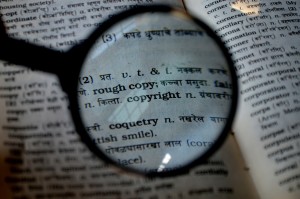 The Latvian Supreme Court has recently ruled on the determination of pecuniary and non-pecuniary damages for copyright infringement in a case where the copyright works had been used for informatory purposes.
The Latvian Supreme Court has recently ruled on the determination of pecuniary and non-pecuniary damages for copyright infringement in a case where the copyright works had been used for informatory purposes.
Case No. SKC-[B]/2016 was adjudicated in a closed hearing, as a result of which the number of the case file and the date of the judgment were anonymised. In essence, the Supreme Court ruled that in Latvia (i) unearned income can be used in the calculation of damages but not in establishing the fact that the damages have actually occurred; (ii) non-pecuniary damages for moral harm in copyright infringement cases cannot be presupposed but must be substantiated by evidence; (iii) the obligation to obtain a licence for each and every use of the copyright works also applies to the sub-licensees; and (iv) publication of the copyright works for informatory purposes cannot serve as a basis for not indicating the original author’s name.
The case in question concerns a claim brought against the publisher of a newspaper whereby the claimant requested minor pecuniary damages in the amount of approximately EUR 340 and non-pecuniary damages for moral harm in the amount of approximately EUR 4270. The claimant alleged that three of her photographs were unlawfully taken and subsequently used in producing another photograph by the newspaper: a photograph of a person holding the author’s original photographs. The claimant argued that her works were used without permission and, furthermore, no reference to her name was made. The defendant, in its turn, submitted that the editors of the newspaper had received the claimant’s photographs from an anonymous source, and the photograph in dispute was taken to illustrate a journalist examining the photographs received. Correspondingly, the defendant stated that the photograph published in the newspaper included the name of a third-party author who took the picture of the journalist holding the claimant’s photographs.
The first instance court (Riga City Vidzeme District Court) dismissed the claim, while the court of appeals (Riga Regional Court) satisfied the claim in part, awarding the requested amount of pecuniary damages and approximately EUR 700 in non-pecuniary damages. The claimant appealed the judgment of the court of appeals on the points of law. In assessing basis for the calculation of damages, the Supreme Court reiterated that according to Article 69.1(2) of the Copyright Law the amount of compensation for pecuniary and non-pecuniary damages shall be determined in accordance with the Civil Law. Article 1770 of the Civil Law provides that loss shall be understood as any deprivation of financial value which, according to Article 1772 of the Civil Law, could take the form of existing damages or unearned income. The Supreme Court highlighted that Article 69.1(2) of the Copyright Law is only applicable for the calculation of damages once the fact that the damages have occurred is established; this provision, however, cannot be used for establishing such fact. Consequently, the Latvian law does not foresee that the defendant’s earned income should automatically be considered as the claimant’s unearned income.
In Latvia, when a claim for damages is included in the action, the claimant is required to prove the fact of the infringement, the fact of the damages and the amount of damages. The claimant must further furnish evidence to warrant the causal link between the copyright infringement, on the one hand, and the fact and amount of the damages, on the other hand. In the present case, the Supreme Court was of the opinion that the claimant had proved the fact of the copyright infringement but had failed to establish the causal link between the infringement and any damages suffered thereof. The Supreme Court emphasised that the claimant had not initially planned to publish the photographs and thus it could not be deduced that the claimant had suffered the loss of unearned income as there was no intention to gain profit from sale of the photographs in the first place.
The Supreme Court rejected the defendant’s opinion that it was enough to indicate in the newspaper just the name of the author who had taken the picture of the journalist looking at the claimant’s photographs. The Supreme Court concluded that the obligation to obtain a licence from the copyright holder for each and every use of the copyright work applies to every subsequent user of the work, not only to the initial licensee. The original author has absolute rights to the copyright work and those rights have to be respected by every user of the work, including the reproducers and their publishers. Moreover, as provided in Article 20(1) of the Copyright Law and Article 5(3)(c) of the InfoSoc Directive 2001/29 EC, the obligation to respect the work in its full scope also applies to publishers who use the copyright works for informatory purposes.
Finally, the Supreme Court found that the court of appeals had erred in concluding that the existence of moral harm in copyright infringement cases can be presupposed. The Supreme Court elaborated that Article 1635(3) of the Civil Law provides an exhaustive list of criminal offences where the existence of moral harm can be presupposed and, as a result of which, non-pecuniary damages can be awarded. The Supreme Court clarified that copyright infringement is not referred to in Article 1635 of the Civil Law, and therefore non-pecuniary damages for moral harm have to be substantiated by evidence.
Given the findings and the points of law examined, the Supreme Court referred the case back to the court of appeals for a decision on the merits of the claim for compensation.
________________________
To make sure you do not miss out on regular updates from the Kluwer Copyright Blog, please subscribe here.


